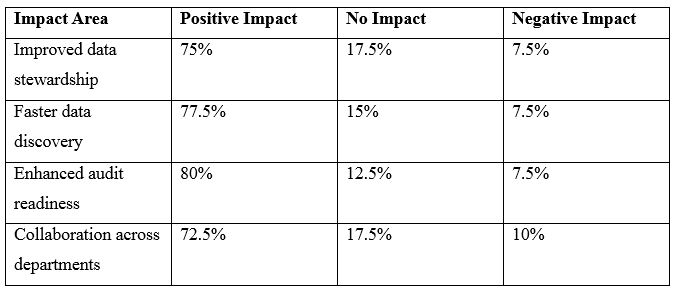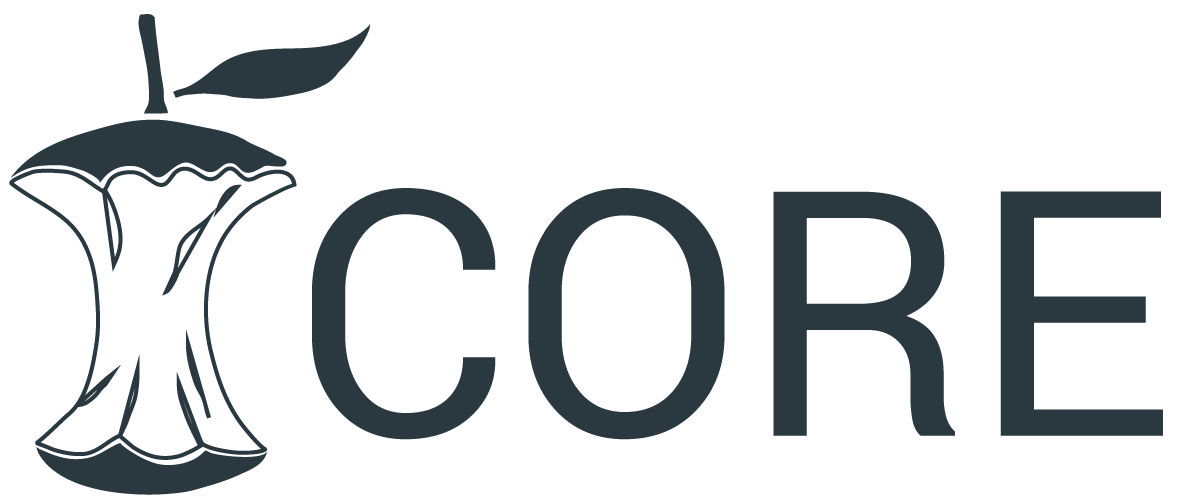Assessing the Effectiveness of Metadata Management Systems in Enhancing Data Governance: A Primary Study of IT and Data-Driven Organizations
DOI:
https://doi.org/10.5281/zenodo.16792143Keywords:
metadata management systems, data governance, data quality, information architecture, IT organizations, data-driven enterprises, data lineage, compliance, data stewardship, digital transformationAbstract
In the era of digital transformation, data has become a critical asset for organizations, necessitating robust data governance frameworks. Metadata management systems (MMS) have emerged as essential tools for ensuring data quality, traceability, compliance, and overall governance. This study investigates the effectiveness of metadata management systems in enhancing data governance practices within IT and data-driven organizations. Through a combination of qualitative interviews and quantitative surveys conducted across multiple industries, the research identifies key functionalities, adoption challenges, and measurable impacts of MMS on data governance maturity. Findings indicate that organizations utilizing advanced MMS experience improved data lineage tracking, policy enforcement, and stakeholder collaboration. However, integration complexity and lack of skilled personnel remain barriers to full implementation. This paper contributes to the understanding of MMS as a strategic enabler for data governance and offers recommendations for organizations aiming to optimize their metadata practices.
Downloads
References
Cheong, L. K., & Chang, V. (2007). The need for data governance: A case study. Proceedings of the 18th Australasian Conference on Information Systems (ACIS), pp. 999–1008.
Davenport, T. H., & Harris, J. G. (2017). Competing on analytics: The new science of winning. Harvard Business Review Press.
Khatri, V., & Brown, C. V. (2010). Designing data governance. Communications of the ACM, 53(1), 148–152.
Ladley, J. (2019). Data governance: How to design, deploy and sustain an effective data governance program. (2nd ed.). Morgan Kaufmann.
Loshin, D. (2013). Practitioner’s guide to data quality improvement. Morgan Kaufmann.
Otto, B. (2011). Organizing data governance: Findings from the telecommunications industry and consequences for large service providers. Communications of the Association for Information Systems, 29(1), 45–66.
Vassiliadis, P., Quix, C., & Vossen, G. (2002). Metadata for data warehouses: What, where, and how. Data & Knowledge Engineering, 39(2), 131–178.
Bhattacharya, A., & Sharma, N. (2022). Role of metadata in ensuring data privacy and compliance: An Indian regulatory perspective. International Journal of Information Management, 64, 102487. https://doi.org/10.1016/j.ijinfomgt.2022.102487
Cheong, L. K., & Chang, V. (2007). The need for data governance: A case study. Proceedings of the 18th Australasian Conference on Information Systems (ACIS), 999–1008.
Davenport, T. H., & Harris, J. G. (2017). Competing on analytics: The new science of winning. (Rev. ed.). Harvard Business Review Press.
Khatri, V., & Brown, C. V. (2010). Designing data governance. Communications of the ACM, 53(1), 148–152. https://doi.org/10.1145/1629175.1629210
Ladley, J. (2019). Data governance: How to design, deploy, and sustain an effective data governance program. (2nd ed.). Morgan Kaufmann.
Loshin, D. (2013). Practitioner’s guide to data quality improvement. Morgan Kaufmann.
Otto, B. (2011). Organizing data governance: Findings from the telecommunications industry and consequences for large service providers. Communications of the Association for Information Systems, 29(1), 45–66. https://doi.org/10.17705/1CAIS.02903
Vassiliadis, P., Quix, C., & Vossen, G. (2002). Metadata for data warehouses: What, where, and how. Data & Knowledge Engineering, 39(2), 131–178. https://doi.org/10.1016/S0169-023X(01)00043-6
DAMA International. (2017). DAMA-DMBOK: Data management body of knowledge (2nd ed.). Technics Publications.

Published
How to Cite
Issue
Section
License
Copyright (c) 2025 Vrushali Yadavrao Ahire

This work is licensed under a Creative Commons Attribution 4.0 International License.
Research Articles in 'Management Journal for Advanced Research' are Open Access articles published under the Creative Commons CC BY License Creative Commons Attribution 4.0 International License http://creativecommons.org/licenses/by/4.0/. This license allows you to share – copy and redistribute the material in any medium or format. Adapt – remix, transform, and build upon the material for any purpose, even commercially.









